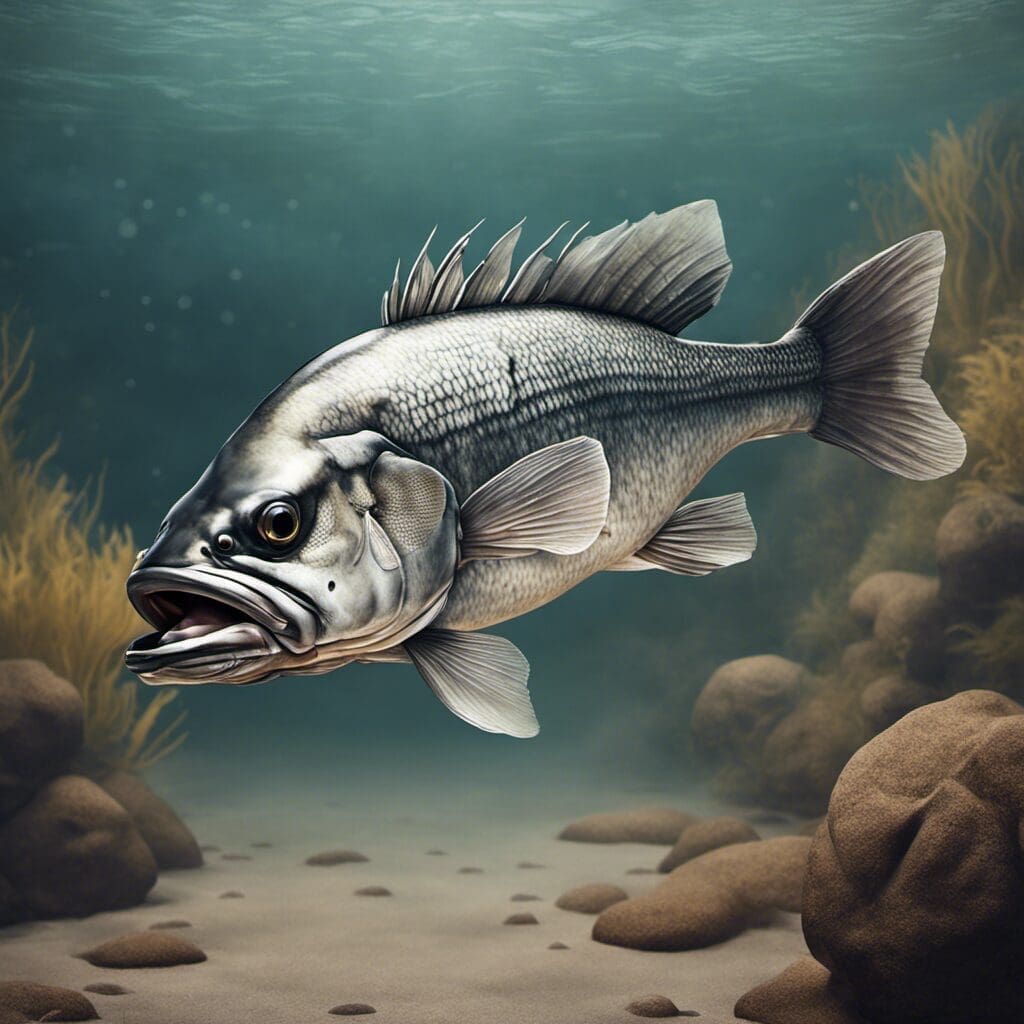Introduction
Sea Bass, a term often used to describe a variety of saltwater fish species from different families, including Moronidae, Serranidae, or even Latidae, is a ubiquitous and diversely interesting marine species.
Conservation Status
The various species of sea bass have varying conservation statuses. Some are on the brink of threatened due to overfishing, while others enjoy stable populations. Governments and conservation organizations are making efforts at sustainable fishing practices and replenishing populations where necessary.
Statistics
| Attribute | Average | Range |
|---|---|---|
| Length | 60 cm | 15-100 cm |
| Weight | 1 kg | 0.5-5 kg |
| Lifespan | 15 years | 10-20 years |
Distribution
Sea basses are found worldwide in tropical and temperate seas. Some species migrate during their lives, usually moving between spawning and feeding grounds. The exact nature of these migrations is species-specific.
Habitats
Sea bass are versatile and can be found in a variety of habitats, including saltwater, osmotic water, and occasionally, freshwater. They usually live in coastal zones, in depths ranging from surface level down to about 200 meters. Adapted to varying temperatures, sea bass can dwell in both cold and warm waters.
When and Where to See
The sighting of this species varies depending on the specific species and location. However, summer is the peak season for observation in most locations, and they are usually most active at dawn or dusk.
Best Fishing Locations
Some of the top locations to fish for Sea Bass include:
- The coasts of Southern England
- The Gulf of Mexico
- The Southern Australian coastline
- The eastern seaboard of the United States
- The Mediterranean Sea
- The waters around Japan
- The South China Sea
- The coast of Morocco
- The waters around New Zealand
- The Adriatic Sea
How to Catch
Sea Bass are attracted to a variety of baits and lures, including shrimp, squid, and artificial bait. Techniques such as trolling, bottom fishing, and even fly fishing can be effective. The best season to fish for sea bass depends on the specific species and location, but in general, the warmer months are ideal.
Identification Guide
Sea Bass generally have a streamlined, elongated body with a large mouth and sharp, strong teeth. Their coloration usually varies from dark or greenish-brown on the back to silvery or white on the underside, yet this can change, depending on the species or individual.
Culinary
Sea Bass is a popular seafood, known for its mild, delicate flavor and firm, white meat. It is high in protein and offers a good source of Magnesium and Phosphorus, and a very good source of Protein, Vitamin B6, Vitamin B12, and Selenium.
Additional Information
Sea Bass are predators and feed primarily on smaller fish, squid, and crustaceans. They face threats from larger marine animals like sharks and seals as well as from human fishing activities. Throughout history, Sea Bass has featured in various culinary traditions around the world and remains a popular seafood choice to this day.
References and Further Reading
- Aquarium of the Pacific – Giant Sea Bass
- NOAA Fisheries – Black Sea Bass
- Seafood Watch – Sea Bass

